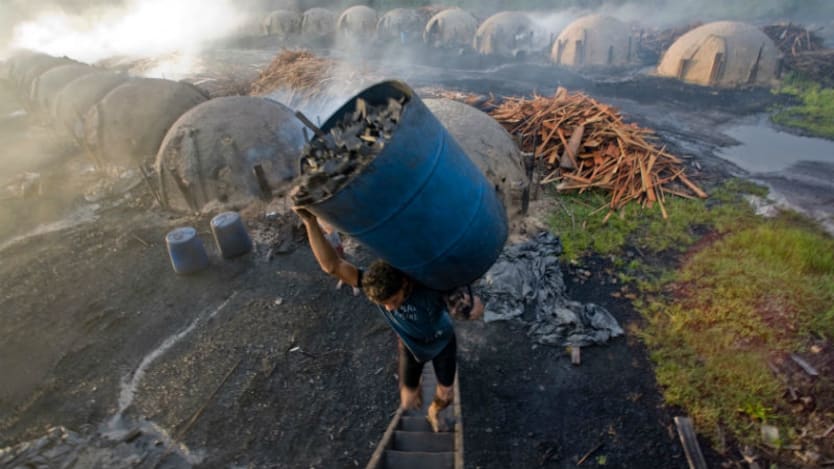
As global leaders come together in Istanbul this week for the World Humanitarian Summit, stories about human trafficking highlight an opportunity for the private sector to play an important role in recognizing red flags.
Companies within the travel industry, including several airlines, are taking important steps to address trafficking. For example, Delta Airlines flight attendants participate in a computer-based training program that equips 68,000 employees with knowledge to monitor Delta’s 15,000 daily flights for instances of human trafficking.
This effort is part of the airline’s partnership with the U.S. Department of Homeland Security’s Blue Lightning Initiative. Delta was also among the first companies to sign The Code of Conduct for the Protection of Children from Sexual Exploitation in Travel and Tourism, developed by the anti-slavery nonprofit ECPAT-USA. This example of private sector leadership, combined with nonprofit and government expertise, demonstrates the strong potential of mobilizing cross-sector partnerships to address modern slavery.
A complex social challenge
The human side of the issue
Sitting in the aisle seat, the seasoned business traveler had seen it all — screaming babies, families scrambling to find documents, frantic questions about connecting gates. Today, imagine a frequent flier who notices a young woman accompanied by a much older man. They make an unusual pair, with the man adopting an overly protective posture and the woman fidgeting uncomfortably at his side, her eyes darting about as if searching for an exit.
Upon landing, law enforcement bursts into the cabin and apprehends the man. He is a human trafficker, likely intending to sell the young woman into forced labor or prostitution. Alarmed by this revelation, the traveler’s mind races while exiting the plane, wondering what safeguards exist to prevent this crime. What could be done? Could the airline, or the traveler, have done anything to help prevent this unspeakable situation?
Modern slavery, often referred to as human trafficking, is one of the fastest growing criminal activities. The International Labor Organization estimates that predators net $150 billion in profits annually by exploiting millions of vulnerable men and women around the world. This crisis has recently been exacerbated in Europe, as traffickers have exploited the migration of millions seeking to escape unrest in the Middle East and North Africa. While data on the number of victims is limited, Europol estimates that human traffickers made record profits of $3 billion to $6 billion last year by capitalizing on the refugee crisis.
Modern slavery can be characterized as a wicked problem: a social challenge that is complex, dynamic and seemingly intractable.
Wicked problems can adversely affect the private sector: For example, modern slavery risks tainting supply chains and damaging companies’ reputations. However, due to slavery’s complexity, businesses sometimes seek to collaborate with cross-sector allies with specific capabilities to address this wicked problem.
Engage networks to combat modern slavery
In a recent example, the U.S. State Department and civil society organizations, Verité, Made in a Free World, and the Aspen Institute, launched a Responsible Sourcing Toolkit to share their expertise on identifying human trafficking in supply chains with the private sector. Even beyond focusing on supply chains, companies like Delta are creating cross-sector coalitions, reframing crises as “wicked opportunities” that enable mutual benefit and significant impact. By engaging powerful networks of partners, businesses can be critical allies in the fight against modern slavery.
Consider a recent collaboration that led to a national hotline and app for reporting trafficking in Albania. Telecom giant Vodafone engaged humanitarian organizations NetHope and World Vision, and the governments of Albania and the United States. Together these partners launched a new pan-European phone number for reporting trafficking and an app that finds nearby victim service centers (among other functions). By contributing resources and expertise, Vodafone created a “wicked opportunity” resulting in stand-out corporate social responsibility, global publicity, and stronger relationships with the civil and public sectors.
Effective collaborations have increased interest in further partnerships to address humanitarian challenges, including the United Nation’s Sustainable Development Goals. The focus on cross-sector collaboration at the World Humanitarian Summit highlights commitment to tackling these wicked problems.
While these large-scale efforts driven by well-known companies make headlines, the fight against human trafficking demands the involvement of individuals. From discerning consumers making informed purchasing choices to the travelers voicing suspicious incidents, we can all play an important role in combating modern slavery.
You can learn ways to identify human trafficking and spread the word to others in your organization (as a start, you could take a look at resources developed by the DHS Blue Campaign). By doing so, you and your colleagues are able to join the coalition of businesses, government agencies, nonprofits and individuals to help humanity resolve this wicked problem so that, together, we can help ensure freedom for all.
Following the World Humanitarian Summit, Devex — along with its partners Deloitte, Ericsson, United Nations Development Programme, and United Nations Office for the Coordination of Humanitarian Affairs — have come together for #ShareHumanity. This six-week online conversation explores the role the private sector plays in humanitarian relief efforts, preparedness and response, both now and in the future.
Use #ShareHumanity and tag @devex to have your say.


